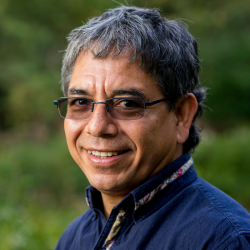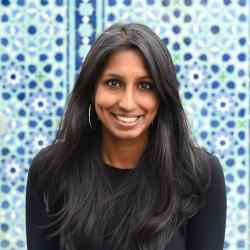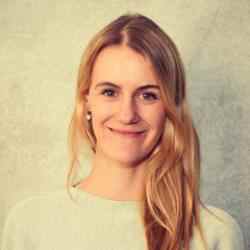Introduction
Given the growing possibility of multiplying by 4 the number of forcibly displaced people by 2050, we need a new way of being able to respond to this crisis in a long-term and cost-effective way. Sonia sees the role that refugees themselves can play in designing relevant solutions by becoming recognized partners.
The New Idea
Sonia identified overlooked existing informal urban refugee-led grassroots communities, whose leaders have unparalleled trust and knowledge of their community, as crucial partners in any long-term resolution of the growing refugee crisis. She is pushing the international approach of addressing refugee issues past the traditional dissociation between humanitarian aid in closed camps and community development, to make it the norm to place urban refugee-led organizations at the center of any relevant solution design.
For this global shift to reach a concrete impact and foster actual partnerships, Sonia is equipping refugee-led organizations to participate in the discussion, while bringing other NGOs to see the opportunity to work with them and develop the skills to do so. Sonia field-tests collaboration with urban refugee-led organizations in various contexts to develop the expertise and replicable methodologies needed to address the specific challenges related to the work with urban refugees. Passing on this expertise, she is able to reshape key local and international NGOs’ perception to pave the way for better relationships and new partnerships.
Demonstrating the feasibility of the integration of refugee-led organizations in the solution design chain, Sonia has set the stage for advocating at a global level and pushing for opening up new fundings streamed toward supporting urban refugees. She contributed to obtaining the mention of “refugee-led organizations” in the second draft of the coming U.N. Global Compact for Migration. In the near future, Sonia foresees bringing more local NGOs into her role by supporting them in replicating the local best practices she has already gathered on an international best-practice sharing platform.
The Problem
The number of forcibly displaced persons in the world has grown from 15 million in 2003 to 53 million in 2014 and 66 million in 2016, including over 25 million refugees. Climate change is about to further multiply these numbers in a dramatic way. We are standing on the edge of a historic and unprecedented refugee crisis. According to a 2016 Amnesty International report, 86% of forcibly displaced persons today are located in developing countries, most of which don’t comply with the 1951 agreement about refugees’ rights. 27% of them are in the least developed countries of earth, struggling to support their own population. Most refugees-related funding streams and media attention are steered towards humanitarian aid in camps, whereas a growing majority (60%) of refugees live scattered across urban areas (UNHCR data). Urban refugees suffer very tough living conditions: they are subjected to discriminations and even arrests, and they lack access to basic healthcare, education and work. Refugee camps are meant to be emergency responses, but the average length of time that refugees spend in camps is 17 years. Existing approaches thus seem hardly sustainable to overcome the growing refugee crisis.
Supporting urban refugees is particularly complex: urban refugees are scattered and discreetly mingle with the host population, they feel safer when unseen and usually avoid moving beyond the boundaries of the district where they are settled. What is more, humanitarian support singling out urban refugees can create tensions with the local poor and local authorities. Urban refugees organize to themselves bring services and opportunities to their community, regrouping in their own organizations behind their own leaders. But it is still hard for local and international NGOs to work with them as they are generally not legally registered and lack the structure and skills to collaborate efficiently with potential partners. Refugee-led organizations are usually informal and sometimes perceived as corrupt. Most NGOs supporting refugees have developed an expertise to manage people in closed camps and seem ill-equipped to face this distinctive complexity of supporting urban refugees. There is an additional challenge in funding work targeting urban refugees as it seems to fall right in-between humanitarian aid and local development support, which are represented by two clearly separated funding streams.
Yet, as the Syrian crisis has dramatically raised awareness about the deficiency of our collective answer, today more and more experts and players are open to looking at new ways of addressing the refugee crisis. After years of eluding the question, global negotiations are finally underway at United Nations headquarters to adopt a Global Compact for Migration in 2018; and addressing mass migration and refugee flows is at the top of the European Union agenda. Still, the United Nations, the European Union and state policy makers lack concrete how-to’s to address the issue and cannot seem to include refugees into the decision-making processes shaping their lives.
The Strategy
Since 2012, Sonia has pieced together a very thorough and precise understanding of the urban refugees’ issue and all its nuances. She has been listening to major actors, such as the former UNHCR (U.N. High Commissioner for Refugees) Head of Policy Development and Evaluation, directors of global and local NGOs, independent researchers; to back her vision and design the most efficient strategy. She leveraged their expertise to prepare for the main challenges she would have to overcome, such as working with informal organizations fearing to be localized or dealing with high leadership turnover. Because most refugees try to stay as close to home as possible, either within their country or in adjacent regions, Sonia decided to go to developing countries to address the bulk of the problem. Knowing the average duration of exile is estimated 17 to 25 years, she set up to help urban refugees sustainably rebuild their life and to support local communities in welcoming them. Listening to other experts and organizations talking about including refugee-led organizations in the design chain of solutions, she realized they didn’t know how to proceed and identified the need for concrete operational tools and solutions.
To fuel her global advocacy and underpin her idea, Sonia resolved to develop and field-test solutions to work with urban refugee-led communities in a variety of contexts, countries and organizations. She first identified the refugee-led groups through a call for applications for intensive six-month on-site capacity-building program in 2016 and 2017, that was relayed by partners and received over 60 answers from refugee-led organizations, already proving that most refugee leaders do want to improve and develop their skills. Sonia set up a list of criteria to select the three first organizations she worked with in Malaysia: they needed to be recognized as active and trustworthy by network partners (e.g. local NGOs, UNHCR), structured enough to work with, available to invest time in the program, ethical; and to have huge concrete needs to achieve their social mission. She selected three communities in Malaysia (a Somalian, a Rohingya, and an Afghan) of different size (700 to 150,000 households), each facing its own challenges. Sonia’s programs start with a two-month needs assessment that helps the refugee leaders to choose by themselves what training modules are best to be followed to increase the indirect impact on the rest of the community. Training modules include for example accounting, fundraising and partnerships management, community management, basic digital skills and better communication through new technologies. To ensure the appropriation and efficiency of the capacity-building program, Sonia is consistently implementing her vision of empowering grassroots communities every small step of the way: refugee-led organizations decide if they want her help, they decide which training modules they follow, they are trained to pass on knowledge to future leaders and they are supported in developing their own solutions rather than receiving ready-made solutions to be implemented.
Following Sonia’s programs, the number of urban refugees accessing services offered by refugee-led organizations increased for all three trained organizations, and they all increased the quality of service and protection offered to the community (one tripled its programs offering, another created more than 10 new services). As an example, two refugee-led organizations out of three were able to increase their annual budget by at least 25% in the three to six months post-training. More particularly, for the very first time, the Afghan refugee-led organization has been able to apply for and receive a grant from the UNHCR local office. Two refugee-led organizations drafted a constitution shared publicly at their office space and included processes for elections and replacement of leaders. This led to a significant decrease in community complaints. All three organizations increased the gender representation within their organization; and all now conduct Monitoring & Evaluation activities and have increased their engagement with partners post incubation. With these results, Sonia is showcasing the possibility of a fruitful work with refugee leaders, with the underlying objective of transforming the global prevailing perception of mistrust towards refugee-led organizations.
Sonia is now preparing new field missions in Lebanon and Uganda, to test other contexts and adapt her flexible methodology. For instance, in Uganda, she will adapt her support strategy to the specific challenges of an emerging type of actor: networks of refugee-led organizations. She ambitions to encourage the creation of such networks at city scale to facilitate peer-learning, exchange info and best practices, and carry more weight in discussions with other local actors.
Building on the field expertise she develops as well as on other existing best practices, Sonia then starts to equip other local and international NGOs with the knowledge and skills to capacitate and work with refugee-led organizations. She developed an online platform that she calls a “storehouse of solutions” where actions, best practices and experience concerning urban-refugees led by diverse NGOs all over the world (such as Kiron, the Jesuite Refugee Service, Same Skies...) are precisely described. 80 local and international NGOs already registered on the platform to freely benefit from this field expertise. To ensure these best practices do multiply, Sonia identified the need to support “replication initiatives”: to date, she supported a pilot project of international replication from an Indonesian NGO to a Jordanian NGO and based on this first experience, she now works at structuring this offer. At the global level, Sonia strategically supports the headquarters of international NGOs with large capacities in developing the necessary new know-how to shift from camps to urban areas. For instance, she is in discussion with Handicap International (present in 61 countries) to train their staff to better address challenges faced by urban refugees. While increasing her indirect impact, training and consulting for other NGOs and public institutions also represents a revenue stream to sustain Sonia’s activities. She also sees potential in developing training for companies, where employees could learn from the core competencies of urban refugees who face uncertain environment daily and develop high resiliency.
Sonia’s grounded work serves as a solid base for her global advocacy for inclusion of refugee representatives in the design chain of solutions. Sonia is connected with many key organizations, such as the UNHCR, the Global Alliance for Cities in Crisis and the World Humanitarian Summit, and this is well-positioned to influence key global decision-makers through conferences, workshops or consulting. Leveraging the Global Compact political agenda, she wrote a “white paper” about refugee-led organizations, that is available on the UNHCR website.
The Person
Sonia’s father left Tunisia to never go back before she was born and wrote a lot about feeling rootless. Sonia was thus sensitive to migrations issues very early on. During an academic exchange in Columbia, she witnessed demonstrations and armed conflicts, and decided to get involved in a local organization taking care of internally displaced people. Listening to these persons feeling uprooted resonated in her and she resolved to commit to this issue. She studied migration and refugee issues and went to Lebanon and Palestine to work in refugee camps. She saw an emergency solution dragging out; in Beirut, she was deeply touched when meeting with a group of urban refugees detained in an underground parking with very harsh life conditions. They seemed totally forgotten. She also saw a group of refugees demonstrating in front of the UNHCR building and realized the underlying power of urban refugees when organizing in groups to be heard. This ended to convince her there was something wrong in putting almost all efforts into these unsatisfactory camps while the majority of refugees lived in urban areas. She thus took on the mission to raise the voice of the “invisible” urban refugees and find new way to tackle this growing but overlooked issue.
Thinking global, Sonia first wanted to advocate for urban refugees. She made a website with a graphic designer friend to raise awareness about the issue, and she challenged the UNHCR quite bluntly. But soon she realized that, to provoke a global system change, she would have first to create, develop and prove concrete solutions in the field and build a legitimate expertise before she could bend things at a higher level. During a thorough apprenticeship, she contacted prominent figures in the sector of refugee aid, including experts from the UNHCR or Women’s Refugee NGO, or Ashoka Fellows. She listened and fed on their expertise and had them challenge her ideas, and ended up structuring the entrepreneurial organization she needed as a vehicle to spread her vision. With a strong solution-oriented mindset, she started an iterative process to field test and adjust field programs with urban refugees rather than only for them.
During the first on-site trainings she led, Sonia was in the field, issuing courses, designing programs and improving her methodology and processes. She is now stepping into a strategic coordination role, to support and monitor her organization’s development from Paris. She is described by her colleagues and partners as a calm and determined leader as well as an efficient network builder.
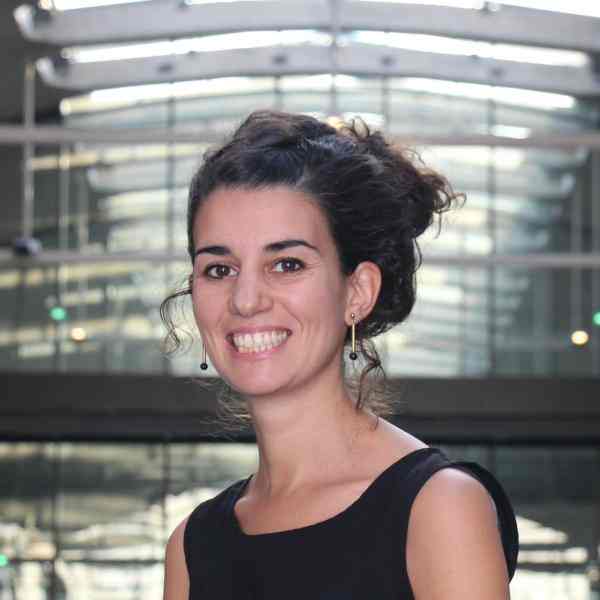
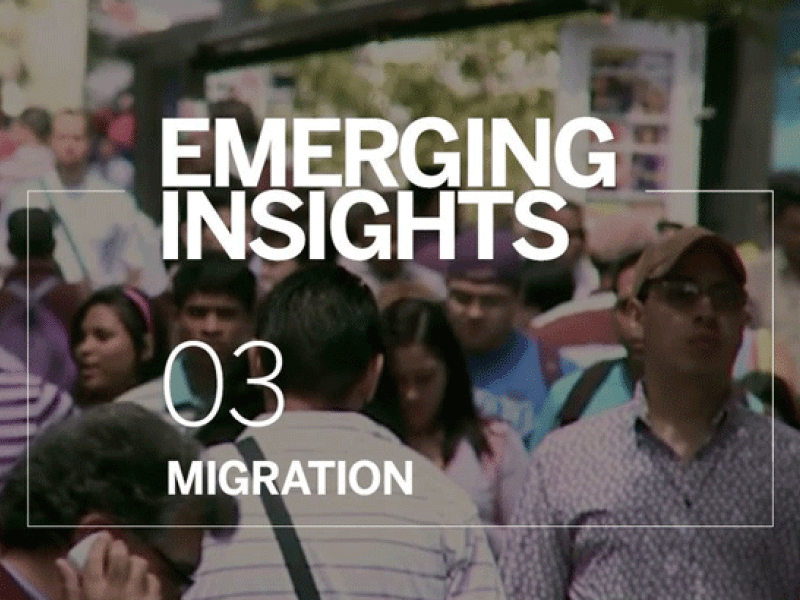 Tile image
Tile image
